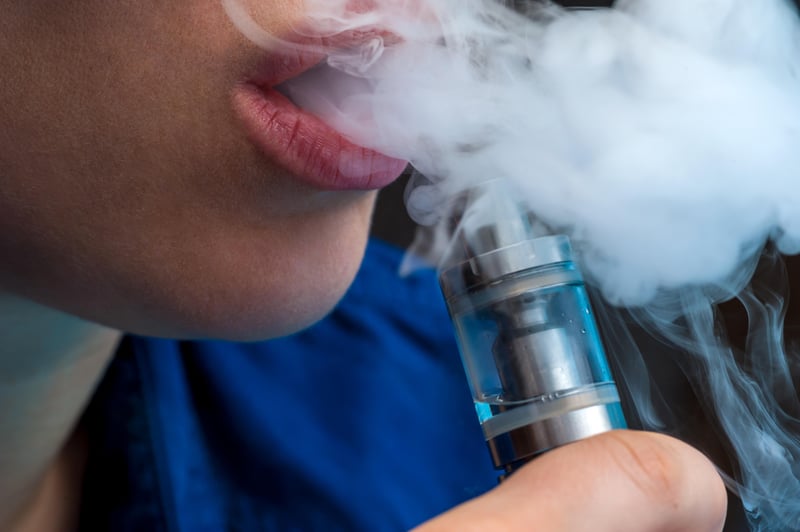Get Healthy!

- Posted December 14, 2022
Vaping Won't Help Smokers Quit, Another Study Finds
So much for vaping as a smoking-cessation tool: New research finds most folks who use both traditional cigarettes and e-cigarettes are likely to continue smoking rather than quit, a new study finds.
How much is most? Only 10% quit vaping and smoking.
"As used by the general population, e-cigarettes have not contributed to substantial smoking cessation," said lead researcher Nandita Krishnan, a doctoral student in the department of prevention and community health at George Washington University in Washington, D.C.
"Considering that smoking cigarettes is harmful, and the long-term effects of e-cigarette use are unknown, and using both products concurrently carries increased risk, people should be encouraged to quit using both products," she added.
Vaping nicotine is addictive and has been linked to an increased risk of heart disease and lung disease, Krishnan said.
People use e-cigarettes for a variety of reasons, she said. "These include trying to quit or cut down on smoking, the appeal of flavors, the fact that they don't smell, and some people vape to get a nicotine fix in places where they can't smoke cigarettes."
For the study, Krishnan and her colleagues collected data on 545 cigarette smokers who also vaped.
The researchers took into account various factors, including race and ethnicity, education and behavioral factors, such as frequency of nicotine, alcohol and marijuana use and perceptions about vaping as more or less harmful than cigarettes.
They found that 76% of the participants smoked cigarettes daily and 33.5% vaped daily; 62.5% drank alcohol and 25% smoked marijuana. In all, nearly 82% thought vaping was less harmful than smoking.
They also found that 66% of e-cigarette users quit vaping during the study period, but a third continued to vape throughout the six-year study period.
Among cigarette smokers, 55% continued to smoke, while 27% slowly quit and 17.5% quit early in the study.
Over the course of the study, 42% quit vaping but continued to smoke cigarettes. Fifteen percent continued to smoke and vape, the researchers found.
One weakness of the study was that the information on vaping and smoking was provided by the participants, which is not always accurate because memories fail and people may be telling the investigators what they think they want to hear, the researchers noted.
The report was published online Dec. 13 in the journal Tobacco Control.
Dr. Amit Mahajan, a volunteer medical spokesperson for the American Lung Association, doesn't think it's wise to use e-cigarettes as a way to quit smoking.
"I think people should take a step back and remember that cigarettes have nicotine, but also a bunch of other chemicals and toxins that are really bad for your lungs -- carcinogens that can cause cancer," he said. "People think that e-cigarettes are just pure nicotine. But nothing is pure, and there's tons of stuff mixed into that. People try to use e-cigarettes to help wean off cigarettes, but this study shows that that's just not the case long term."
Mahajan said there are proven ways to help people quit smoking, which include counseling, nicotine replacement patches and gum, and drugs such as Chantix and bupropion (Wellbutrin).
"At the end of the day, the data is pretty clear that if there's behavioral therapy combined with pharmacotherapy medications, that is the best option for smokers who want to quit and people who've already tried and were unable to quit," Mahajan said.
More information
For more on quitting smoking, see the American Lung Association.
SOURCES: Nandita Krishnan, MSPH, doctoral student, Department of Prevention and Community Health, George Washington University Milken Institute School of Public Health, Washington, D.C.; Amit Mahajan, MD, volunteer medical spokesperson, American Lung Association; Tobacco Control, Dec. 13, 2022, online








